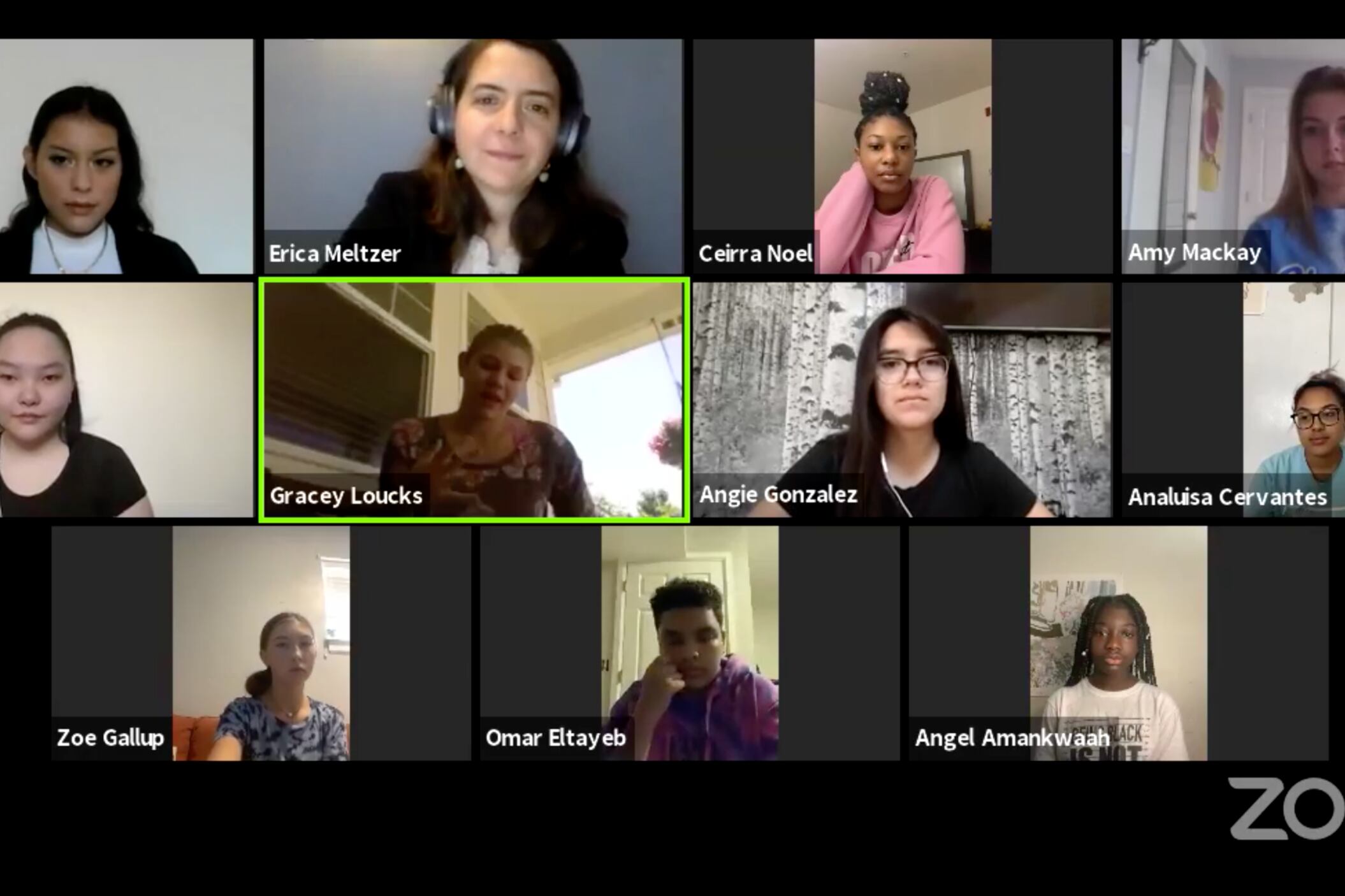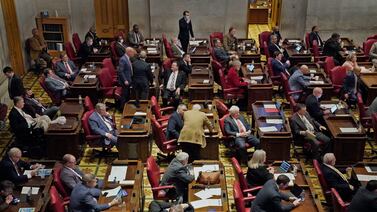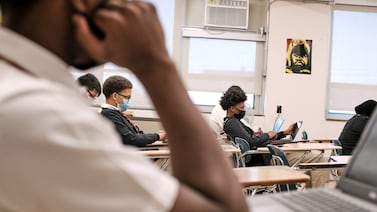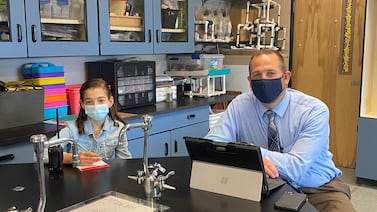Some students still don’t know their schedules as the fall semester approaches. Others haven’t heard from teachers. They worry about their family or themselves contracting COVID-19 if they return to school. And they are concerned that their voice isn’t being incorporated into how best to meet student needs.
Those are some of the concerns and needs a group of high school students expressed during a virtual panel discussion about the coming school year and life during the pandemic. Hosted by Chalkbeat Colorado, the Gates Family Foundation, and the Colorado Education Initiative, the Wednesday panel included 10 students from high schools across the state.
More than 170 parents, teachers, and community leaders logged in to watch and listen to the students, all members of the Colorado Youth Congress and Young Aspiring Americans for Social and Political Activism.
Across the board, students expressed frustration that they still don’t know what their classes will look like or who their teachers will be, even though the fall semester is poised to begin. They asked the adults watching online to seek out student opinions and expertise about remote learning. Some want more time to talk about racial justice issues, which exploded in recent months after the killing of George Floyd by police in Minneapolis.
And students asked their teachers to remember that students have a lot on their plates, including worries about their family’s safety, finding motivation to learn in a difficult environment, and readying themselves for college.
The 10 students said that the pandemic has reshaped their lives in many ways. Schools banished after-school sports in the spring, cancelled extracurricular activities, moved tutoring and counseling online, and reworked — then reworked again — schedules for the coming year.
Students said the looming return to school, even as adults keep shifting about whether to reopen campuses or begin remotely or create a hybrid of the two, provokes anxiety.
“School isn’t my only priority,” said Omar Eltayeb, a student at DSST: Montview in Denver. He also may have to focus on family issues, “or just like stuff in our personal lives,” he said. “And I wish teachers could understand that better. Just, like, be in our shoes.”
Kelly Hoang, a student from Denver, added she hopes that adults take a compassionate and empathetic approach, saying that students are watching families and friends around them struggle to adjust to the life-altering pandemic.
“Understand that this is a hard time and we’re going through it with you,” said Hoang, a student at DSST: College View High School.
School districts statewide closed doors in the spring to curb the spread of the coronavirus. The quick switch to remote learning posed challenges in adapting to learning from home, difficulties accessing resources like college and mental health counseling, and a sudden end to extracurricular activities that many students rely on to socialize.
In a survey of more than 1,000 students, the Colorado Youth Congress and other youth organizations found that just 4.4% of students reported that schools asked them their preferences and needs before starting remote learning. One-quarter of students said they were never asked for any input.
More than 40% of students said they lacked at least one resource — such as a laptop, internet access, or a place to work — that they need for online learning. Many more responded that they needed more opportunities to spend time with friends and more attention to their mental health.
Colorado has not crafted a cohesive statewide vision of how students should go back to school. Instead, each of Colorado’s 178 school districts has come up with its own plan, together employing a mix of strategies.
More than anything, students value and worry about safety, including for their teachers.
Holyoke High School’s Amy Mackay, who lives in the northeast corner of the state, said students are looking for a sense of normality now and relying on adults to make the right decisions to keep students safe.
Students expressed frustration about schools’ shifting messages and said they don’t want adults to make rushed decisions.
“We want to be able to go back to school and stay in school, not go back to school and have to be back online in a month or two because they didn’t take the precautions that were needed,” Mackay said.
Students also discussed how they’ve received little communication from teachers and administrators about the planned daily schedule.
Ashley Garcia Torres, an Aurora Gateway High School International Baccalaureate student, said she still hasn’t received a schedule, even though school is scheduled to start next week.
The lack of schedules preoccupies those who will return to school remotely, students said.
“We haven’t really heard about schedules or exactly, like how Zoom calls are going to be structured, in what order, and how much homework is going to be distributed,” said Angie Gonzales, who attends Glenwood High School in Glenwood Springs. “So we just know that it’s going to be virtual.”
The student panelists also hope school leaders will address some of the snafus and difficulties that cropped up during virtual learning in the spring. They’d like ways for students to interact with each other — instead of just listening to teachers online — this time around.
Student Angel Amankwaah of Dr. Martin Luther King Jr. Early College high school said she would love to see schools schedule extracurricular activities, to help students get excited about school.
Garcia Torres said she’d also like to see teachers create a space to talk about racial justice, in light of recent protests.
“I know that’s a very difficult thing to really take on right now,” she said. “But I feel like there’s many issues that we simply are ignoring and many issues that we as students have voices and opinions [that] aren’t heard.”
Most of all, Garcia Torres hopes for assurances that adults will listen to, and consider and include student voice and opinion when making decisions.
Watch the full conversation below.








